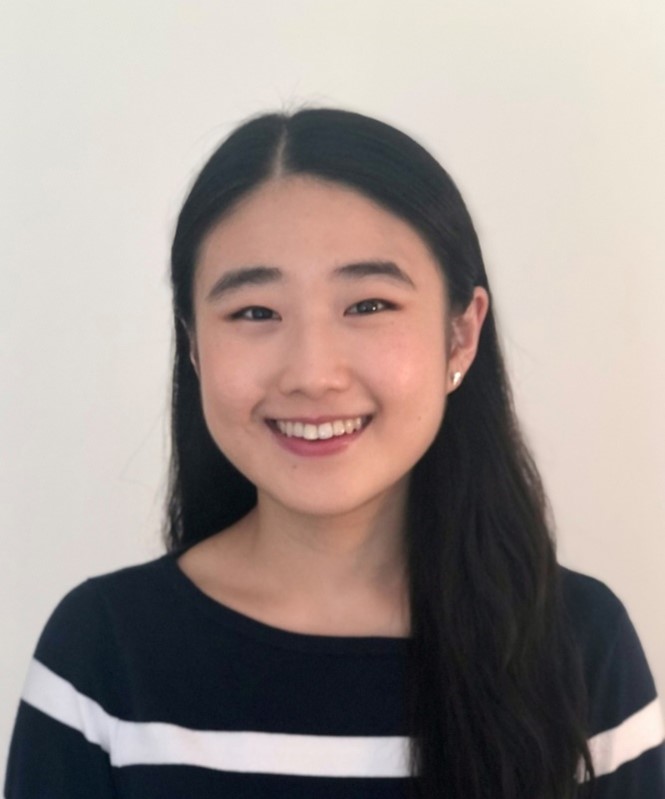Yifan Guo
The University of Melbourne
Yifan studies the Bachelor of Science with a major in pure mathematics at the University of Melbourne, alongside a concurrent diploma in computing. She loves mathematics for its power to connect seemingly disparate concepts and enjoys learning about a range of mathematical fields. Yifan is particularly drawn to algebra and has been an active member of the representation theory student seminar group at her university. As part of the 2021-2022 AMSI Vacation Research Scholarship, Yifan studied how the Knizhnik–Zamolodchikov functor maps certain representations of the rational Cherednik algebras attached to cyclic and dihedral groups to representations of the corresponding Hecke algebras. She also recently co-authored an introductory article on the Macdonald polynomials, titled “From boxes to polynomials”. Yifan was awarded the Dixson Prize in Pure Mathematics in 2020 and was also a recipient of the Melbourne Chancellor’s Scholarship. In October, Yifan will commence the Master of Advanced Study in Pure Mathematics at University of Cambridge. Aside from her studies, Yifan was the president of Melbourne University Mathematics and Statistics Society from 2020–2021. She is also passionate about supporting and mentoring high-school students from disadvantaged backgrounds through weekly volunteering at the Institute for Enquiring Minds.
Can you give me a quick overview of the type of mathematics you are studying and its potential impacts for the broader community?
Symmetry is something that is all around us – from the basic shapes we learn in primary school, to the laws that govern our physical universe. By studying these symmetries, we can gain a better understanding of our world, with applications in quantum mechanics, electrodynamics, and many other fields. There is a beautiful language that can describe these symmetries precisely, and that is group theory in mathematics.
But how can we study something as abstract as groups? My current area of interest is Representation Theory, in which we study these abstract algebraic structures by representing them using matrices. Matrices are very concrete objects that are well-understood and can also be handled by computers very well. Through representation theory, it provides us with a lens for rigorously exploring abstract ideas like symmetries, and hence helps enriching our knowledge about the universe.
How did you get into mathematics and into the area of Representation Theory? Was there someone or something that inspired you to this field?
When I first started university, I was interested in many scientific fields and tried a variety of science subjects. Gradually, I found myself always drawn to the mathematical aspect of each science and enjoyed my math lectures the most. This led to me choosing mathematics as my major.
The group theory subject taught by Professor Arun Ram in my second year was my first glimpse into the beauty of abstract algebra and it absolutely blew me away. Then, a student seminar group in representation theory was initiated at my university. With my strong interest in Professor Ram’s course and a desire to learn more, I did not hesitate to sign up for the seminar group. I greatly enjoyed the seminar group’s collaborative approach to study representation theory with students presenting different topics to each other and I have been an active member ever since.
You received a grant to attend AMSI Winter School 2022. How important was this in terms of your ability to attend, fully participate in the program and meet others studying in similar fields?
As an undergraduate student, unfortunately no funding was available at my home institute to support my participation in the Winter School and the travelling expenses from Melbourne was not an insignificant amount. I am immensely grateful for the grant from AMSI, which enabled me to fully participate in the program in-person. This was instrumental in providing me with an opportunity to not only learn more exciting mathematics, but also connect with other students from around Australia who share an interest in representation theory.
Winter School is designed to give students a deeper understanding of their area of research and expose them to others working in different fields/industries. What was the most valuable part of the program for you? Was it the course content or the people you met? Do you have new ideas for your work/research or see it in a new light?
Besides the interesting lectures, the problem-solving sessions provided me with an opportunity to collaboratively attempting some problems together with other students, which was very helpful for consolidating and internalising the new concepts learnt. My peers were also very generous and willing to explain for me some definitions or ideas that may be briefly skimmed through during lectures, which greatly helped my understanding of the content. I believe both the mathematical insights gained and the network of students with similar research interests built through the AMSI Winter School will be immensely beneficial in my future studies and research.
AMSI-MSRI Winter School was held as a hybrid event with event hubs in Australia and America. What was the biggest positive from your point of view holding it in this format and/or the biggest challenge?
The convenience of being able to attend the Winter School at a node relatively close to my home institute was a positive of the hybrid event, especially considering the unpredictability of visas and flights caused by the pandemic. I think a major challenge was to build a connection among students from different nodes, which was partially helped by use of Sococo.
What advice would you give to someone who is considering applying for Winter School in 2023? How would you describe the conference to them? Should they apply and why?
I would strongly encourage anyone interested in the AMSI Winter School to apply. The conference offers an immersive experience to learn exciting mathematics from speakers who are working at the forefront of their fields and have productive discussions with students with similar research interests.
Where do you want the mathematical sciences to take you? Where do you see yourself in five, ten years time?
After my master’s degree, I hope to pursue a PhD in mathematics, during which I can embark on original research and be equipped with skills that could be beneficial for an academic career. After my studies, I wish to work in academia, where I can do more mathematical research while supporting the next generation of mathematicians through teaching.
Any other feedback/comments you would like to provide on the AMSI Scholarship or AMSI-MSRI Winter School 2022?
To help students from different nodes to connect, perhaps we could have a virtual social night where students can get to know each other better and do some activities together, such as trivia, team-building games, or online board games.
Thank you to all the organisers for arranging this invaluable opportunity for us. I learnt so much and met so many wonderful people in the past two weeks. I look forward to participating in more AMSI Schools in the future.


